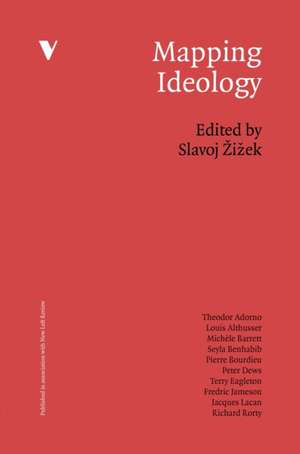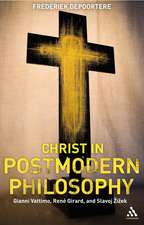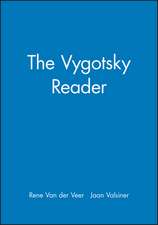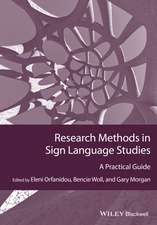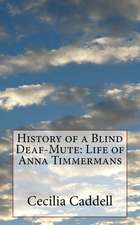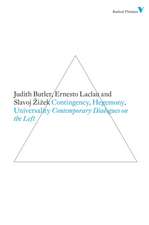Mapping Ideology: Mappings
Theodor W Adorno, Louis Althusser Editat de Slavoj Zizeken Limba Engleză Paperback – 12 noi 2012
Mapping Ideology is a comprehensive reader covering the most important contemporary writing on the subject. Including Slavoj Žižek’s study of the development of the concept from Marx to the present, assessments of the contributions of Lukács and the Frankfurt School by Terry Eagleton, Peter Dews and Seyla Benhabib, and essays by Adorno, Lacan and Althusser, Mapping Ideology is an invaluable guide to the most dynamic field in cultural theory.
Preț: 134.03 lei
Nou
Puncte Express: 201
Preț estimativ în valută:
25.65€ • 26.68$ • 21.18£
25.65€ • 26.68$ • 21.18£
Carte disponibilă
Livrare economică 24 martie-07 aprilie
Livrare express 07-13 martie pentru 31.78 lei
Preluare comenzi: 021 569.72.76
Specificații
Notă biografică
Slavoj Žižek is a Slovenian philosopher and cultural critic. He is a professor at the European Graduate School, International Director of the Birkbeck Institute for the Humanities, Birkbeck College, University of London, and a senior researcher at the Institute of Sociology, University of Ljubljana, Slovenia. His books include Living in the End Times, First as Tragedy, Then as Farce, In Defense of Lost Causes, four volumes of the Essential Žižek, and many more.
Theodor Adorno was director of the Institute for Social Research at the University of Frankfurt from 1956 until his death in 1969. His works include In Search of Wagner; Aesthetic Theory; Negative Dialectics; and (with Max Horkheimer) Dialectic of Enlightenment and Towards a New Manifesto.
Louis Althusser was born in Algeria in 1918 and died in France in 1990. He taught philosophy for many years at the Ecole Normale Superieur in Paris, and was a leading intellectual in the French Communist Party. His books include For Marx; Reading Capital (with Etienne Balibar); Essays in Ideology; Politics and History: Montesquieu, Rousseau, Marx; Machiavelli and Us; and The Spectre of Hegel.
Michèle Barrett is Professor of Modern Literary and Cultural Theory in the School of English and Drama, Queen Mary, University of London. She is the author, among other works, of Women’s Oppression Today, The Anti-Social Family, and Politics of Diversity (co-authored with Roberta Hamilton).
Pierre Bourdieu (1930–2002) was Professor of Sociology at the Collège de France and Director of Studies at the Ecole des Hautes Etudes en Sciences Sociales. He was the author of many books, most notably Distinction, The Rules of Art, The State Nobility, Homo Academicus, The Logic of Practice, and The Weight of the World.
Peter Dews is Professor of Philosophy at the University of Essex. He has published widely on contemporary French and German thought, and is the author of The Limits of Disenchantment.
Terry Eagleton is Professor of Cultural Theory and John Rylands Fellow, University of Manchester. His other books include Ideology; The Function of Criticism; Heathcliff and the Great Hunger; Against the Grain; Walter Benjamin; and Criticism and Ideology, all from Verso.
Fredric Jameson is Distinguished Professor of Comparative Literature at Duke University. The author of numerous books, he has over the last three decades developed a richly nuanced vision of Western culture’s relation to political economy. He was a recipient of the 2008 Holberg International Memorial Prize. He is the author of many books, including Postmodernism, Or, The Cultural Logic of Late Capitalism, The Cultural Turn, A Singular Modernity, The Modernist Papers, Archaeologies of the Future, Brecht and Method, Ideologies of Theory, Valences of the Dialectic, The Hegel Variations and Representing Capital.
The psychoanalyst Jacques Lacan (1901–1981) was one of the twentieth century’s most influential thinkers. His many published works include Ecrits and The Seminars.
Göran Therborn holds the Chair of Sociology at the University of Cambridge, and is editor and author of Inequalities of the World, Asia and Europe in Globalization, Between Sex and Power and From Marxism to Post Marxism?
Bryan S. Turner is professor of Sociology in the Department of Sociology at Cambridge University in England and a professorial fellow of Fitzwilliam College, Cambridge. His previous publications include The Body and Society (1984), Medical Power and Social Knowledge (1987) and Regulating Bodies (1992). He is the joint editor with Mike Featherstone of the journal Body & Society. He teaches medical sociology and the sociology of human rights at Cambridge. He is currently editing the Cambridge Dictionary of Sociology (with Craig Calhoun and Chris Rojek) and the International Handbook of Sociology. He is also doing research on rights, learning disabilities, and social inclusion.
Theodor Adorno was director of the Institute for Social Research at the University of Frankfurt from 1956 until his death in 1969. His works include In Search of Wagner; Aesthetic Theory; Negative Dialectics; and (with Max Horkheimer) Dialectic of Enlightenment and Towards a New Manifesto.
Louis Althusser was born in Algeria in 1918 and died in France in 1990. He taught philosophy for many years at the Ecole Normale Superieur in Paris, and was a leading intellectual in the French Communist Party. His books include For Marx; Reading Capital (with Etienne Balibar); Essays in Ideology; Politics and History: Montesquieu, Rousseau, Marx; Machiavelli and Us; and The Spectre of Hegel.
Michèle Barrett is Professor of Modern Literary and Cultural Theory in the School of English and Drama, Queen Mary, University of London. She is the author, among other works, of Women’s Oppression Today, The Anti-Social Family, and Politics of Diversity (co-authored with Roberta Hamilton).
Pierre Bourdieu (1930–2002) was Professor of Sociology at the Collège de France and Director of Studies at the Ecole des Hautes Etudes en Sciences Sociales. He was the author of many books, most notably Distinction, The Rules of Art, The State Nobility, Homo Academicus, The Logic of Practice, and The Weight of the World.
Peter Dews is Professor of Philosophy at the University of Essex. He has published widely on contemporary French and German thought, and is the author of The Limits of Disenchantment.
Terry Eagleton is Professor of Cultural Theory and John Rylands Fellow, University of Manchester. His other books include Ideology; The Function of Criticism; Heathcliff and the Great Hunger; Against the Grain; Walter Benjamin; and Criticism and Ideology, all from Verso.
Fredric Jameson is Distinguished Professor of Comparative Literature at Duke University. The author of numerous books, he has over the last three decades developed a richly nuanced vision of Western culture’s relation to political economy. He was a recipient of the 2008 Holberg International Memorial Prize. He is the author of many books, including Postmodernism, Or, The Cultural Logic of Late Capitalism, The Cultural Turn, A Singular Modernity, The Modernist Papers, Archaeologies of the Future, Brecht and Method, Ideologies of Theory, Valences of the Dialectic, The Hegel Variations and Representing Capital.
The psychoanalyst Jacques Lacan (1901–1981) was one of the twentieth century’s most influential thinkers. His many published works include Ecrits and The Seminars.
Göran Therborn holds the Chair of Sociology at the University of Cambridge, and is editor and author of Inequalities of the World, Asia and Europe in Globalization, Between Sex and Power and From Marxism to Post Marxism?
Bryan S. Turner is professor of Sociology in the Department of Sociology at Cambridge University in England and a professorial fellow of Fitzwilliam College, Cambridge. His previous publications include The Body and Society (1984), Medical Power and Social Knowledge (1987) and Regulating Bodies (1992). He is the joint editor with Mike Featherstone of the journal Body & Society. He teaches medical sociology and the sociology of human rights at Cambridge. He is currently editing the Cambridge Dictionary of Sociology (with Craig Calhoun and Chris Rojek) and the International Handbook of Sociology. He is also doing research on rights, learning disabilities, and social inclusion.
